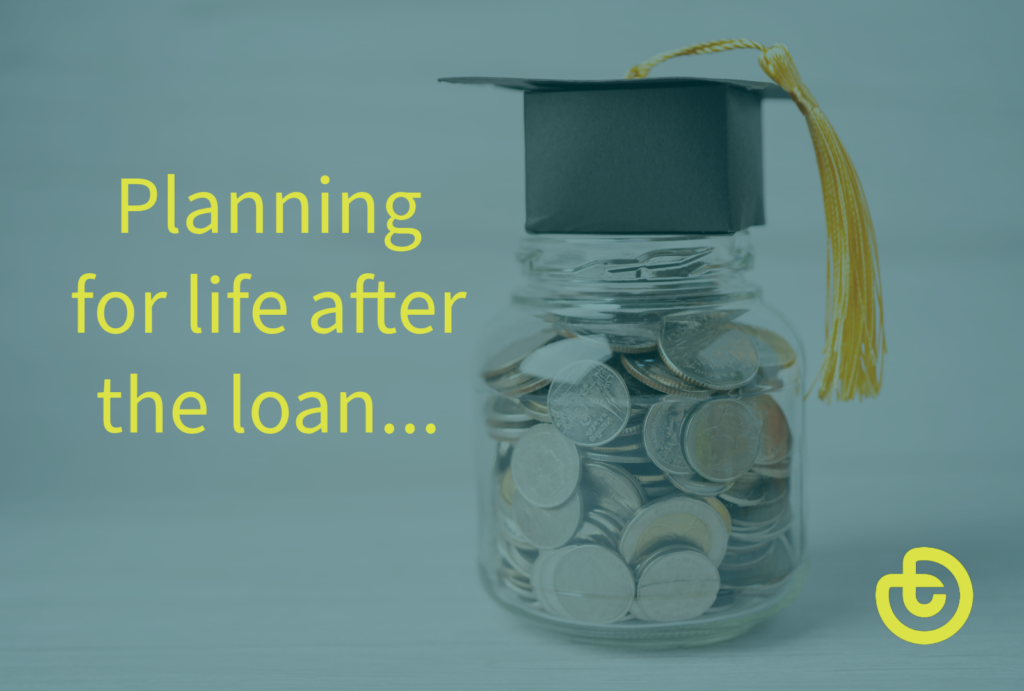Much has been written about the challenges facing recent college graduates. While the initial term on most college loans is 10 years, the reality is that it can often take borrowers 20-30 years to pay off that amount. That puts many borrowers in a dilemma. Should I pay off my loan as quickly as possible, or should I pay the minimum amount and invest the rest. Tough choices and much of it depends on your loan. We asked Penny, Our AI Financial Guide this question:
Should I pay off all my student loans before investing or should I pay the minimum amount and invest any extra?
Here’s the answer.
“Whether to pay off all your student loans before investing or to pay the minimum amount and invest any extra depends on several factors. Here are a few things to consider:
1. Emergency fund: Before you even think about investing, you should spend some time building an emergency fund that will cover 3 to 6 months of your expenses. The reason is simple: when faced with a financial emergency, whether that’s a car repair or a layoff, the unprepared turn to their credit cards to cover the shortfall, placing them in debt. You don’t have to! Put that money in something accessible, such as a high-yield money market account, so it’s there if you need it.
2. Interest rates: Compare the interest rate on your student loans with the potential return on your investments. If the interest rate on your loans is high, it may be more beneficial to pay them off first. However, if the interest rate is low, you may be able to earn a higher return by investing.
3. Time horizon: Consider your time horizon for investing. If you have a long time horizon, you may be able to take on more risk and potentially earn higher returns. In this case, it may make sense to invest while making minimum loan payments. However, if you have a short time horizon, it may be more prudent to pay off your loans first to reduce financial stress.
4. Financial goals: Evaluate your financial goals and priorities. If becoming debt-free is a top priority for you, paying off your student loans before investing can provide peace of mind. On the other hand, if building wealth and achieving long-term financial goals is your focus, investing may take precedence.
5. Employer benefits: Check if your employer offers any retirement savings matching programs. If they do, it’s generally recommended.”
These are great points. For a person right out of college it can be difficult to find money to save, but the longer that money is invested, the greater chance it has to grow. Whatever you choose, we want to help you get there. And once you do finally pay off that loan, here are some of the first moves successful OT users made to make the most of that extra cash flow.
“Invested. Time in the market beats timing the market as they say”
“Gave myself a small reward. Knowing that I accomplished a big goal and being proud of my achievement helped me stay out of debt and value my financial freedom.”
“I took the money I was paying towards the loan and moved it right over to my house downpayment savings. It really helped change the game on my path to owning my home.”
“Real life, that extra money went to all the family activities we had going on, but, feeling like I could finally afford the travel sports was a relief”
“I love to travel. I used to mostly travel where I could drive. Now I’ve started to use that money to save for trips and travel to more of my bucket list locations. I still keep a pretty tight budget too, but I like to see the world.”
One final thought. If you are struggling with multiple debt sources, from school loans to high interest credit card debt, try our Debt Reduction strategies in OnTrajectory Classic. It’s a great way to help you visualize the time and effort needed to get your finances under control.
